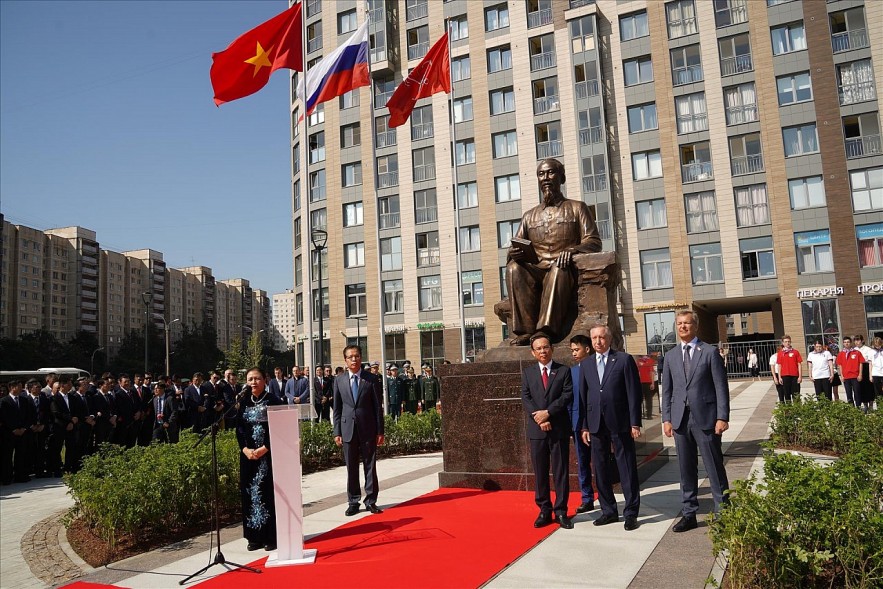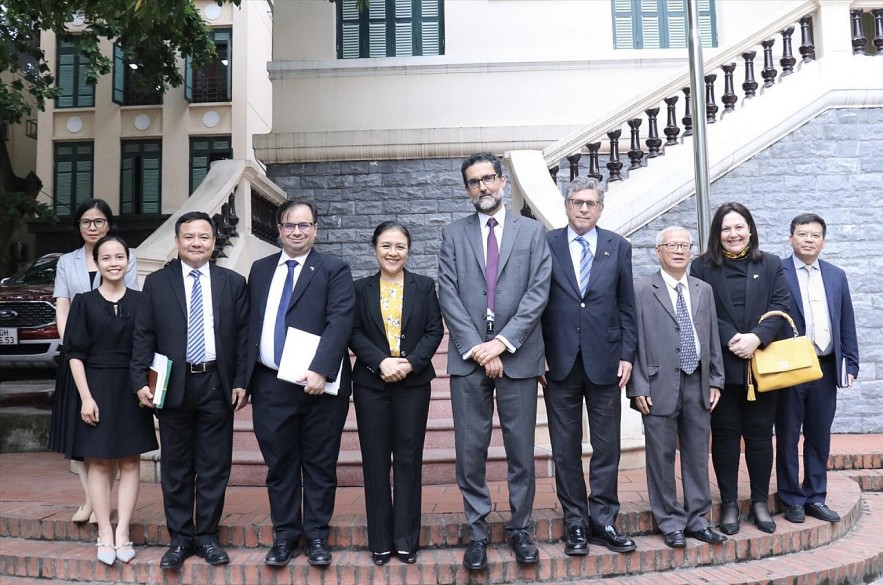Ambassador Nguyen Phuong Nga: A New Era of People-to-People Diplomacy
- Monday - 28/10/2024 22:10
- Close page

Among Vietnam's three pillars of foreign relations (Party diplomacy, state diplomacy, and people's diplomacy), people's diplomacy is considered a unique and creative feature of Vietnam's foreign relations. In which, Viet Nam Union of Friendship Organizations (VUFO) is the specialized agency at the forefront of people's diplomacy.
During Ambassador Nguyen Phuong Nga's tenure as President, VUFO was recognized for its significant innovations and effective performance in its core role of people's diplomacy, which is to leverage the unique strengths of people's diplomacy, effectively supporting Party diplomacy and State diplomacy in protecting and promoting the national interest, especially in issues of democracy, human rights, and maritime sovereignty.
According to Ambassador Nguyen Phuong Nga, people's diplomacy has gone through many stages. In 1945, Vietnam gained independence but had no diplomatic relations with other countries, so this period relied mainly on people's diplomacy. People's diplomacy organizations, under the direction of President Ho Chi Minh, were established immediately after the birth of the Democratic Republic of Vietnam (now the Socialist Republic of Vietnam).
People's diplomacy at that time was active in mobilizing the support of progressive people around the world for Vietnam's justified war.
After the war ended, people's diplomacy underwent another strong transformation, calling on international friends and non-governmental organizations to help Vietnam rebuild after the war, from macro issues such as lobbying the US to lift the embargo to social welfare issues such as poverty reduction, disease prevention, bringing clean water to rural areas, or supporting victims of Agent Orange, supporting bomb and mine clearance.
People's diplomacy during this period went hand in hand with the official channel, playing a supporting and supplementary role when necessary, creating additional channels of contact through former soldiers, researchers, and writers from Western countries to Vietnam, to win over the sympathy of people in other countries for the Vietnamese people's cause of nation-building. Over time, as Vietnam's diplomatic relations expanded, people's diplomacy became less prominent.

However, in the current context of a complex world situation, according to Ambassador Nguyen Phuong Nga, this is the time for people's diplomacy to leverage its advantages and take the lead in building and strengthening trust, mobilizing international support and resources, creating a peaceful and favorable environment for strengthening relations between countries, and providing effective support for Party diplomacy and state diplomacy.
The fact that the 13th Party Congress document defines Vietnam's comprehensive modern foreign relations with three pillars of Party diplomacy, state diplomacy, and people's diplomacy, has the significant, persistent and enduring contributions of VUFO and Ambassador Nguyen Phuong Nga.
"People's diplomacy creates a positive and favorable social foundation, contributing to expanding partnerships between Vietnam and other countries, promoting relations between Vietnam and other countries in areas and issues where state diplomacy cannot fully play its role," said Ambassador Nguyen Phuong Nga.
Specifically, people's diplomacy contributes to enriching the relationship, increasing the attractiveness of the relationship, thereby creating a bond of affection between people of different countries. When the context becomes more complex, people's diplomacy plays a role in creating a positive social foundation at the right time to best support Party diplomacy and state diplomacy.
VUFO plays a pivotal role in facilitating the operations of non-governmental organizations in Vietnam. It is responsible for granting permits, providing support, and maintaining international relations.
People's diplomacy is a unique and valuable asset of Vietnam's foreign relations, as Ambassador Nguyen Phuong Nga has emphasized. To maximize its potential, it requires broad participation from all sectors of society, including youth, businesses, and intellectuals. This will help support Party and state diplomacy in protecting national interests.